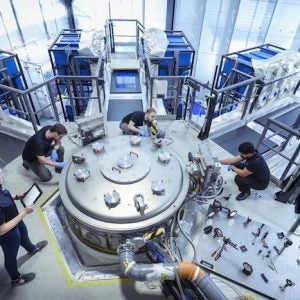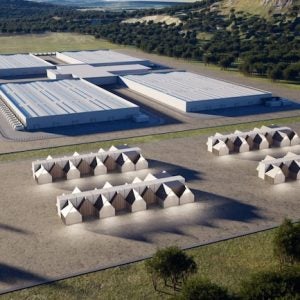The Hiroshima High Court on 13 December revoked a lower court decision and ordered the suspension of Shikoku Electric Power Co’s Ikata 3 in Ehime Prefecture.
The high court suspension order, the first in a series of similar injunctions, mandates that the plant operator to close the unit until the end of September 2018. The ruling blocks the planned restart of the unit in January. Shikoku Electric plans to file an appeal.
The court questioned a decision by the Nuclear Regulation Authority (NRA) that potential risks associated with volcanic eruptions would not breach the stricter regulations introduced following the 2011 Fukushima nuclear accident.
The decision follows a ruling by Otsu District Court in March 2016 that ordered Kansai Electric Power Co to suspend the operation of two reactors at its Takahama plant. The Osaka High Court later overturned that ruling.
The recent Hiroshima High Court decision focused on whether estimates Shikoku Electric Power Co of the potential size of possible earthquakes, were reasonable, and whether safety screening conducted under stricter regulations set after the 2011 Fukushima nuclear disaster was credible. The plaintiffs alleged that in calculating the size of a potential earthquake, the utility had underestimated the fact that the reactor lies above the epicentre of an anticipated Nankai Trough mega-quake, and that it is located near a geological fault.
In March, the Hiroshima District Court had found that the new NRA regulations and Shikoku Electric’s estimates of a possible earthquake and tsunami were reasonable. The district court had rejected a request to halt the reactor, saying, “There is no specific risk that residents will suffer severe damage due to radioactive exposure associated with an accident.” The latest ruling was the first time a high court in Japan has overturned a lower court on the issue of nuclear restarts since the Fukushima accident.
The plaintiffs were four residents from Matsuyama in Ehime and Hiroshima, located on the opposite side of the Seto Inland Sea to the nuclear plant. Similar injunctions have been contested at the Takamatsu High Court, Oita District Court and the Iwakuni branch of Yamaguchi District Court. Of Japan's 42 operable reactors, five have so far cleared inspections confirming they meet the new regulatory safety standards and have resumed operation. These are: Kyushu's Sendai 1&2; Shikoku's Ikata 3; and Kansai's Takahama 3&4.
A further 19 reactors have applied to restart, but some are still facing difficulties. Hokkaido Electric Power Co’s Tomari nuclear plant is facing delays in screening because of a possible active fault beneath the plant. On 8 December the NRA refused to accept Hokkaido Electric’s assertion that no active fault existed in the compound of the plant and ordered the utility to undertake additional research.
I






